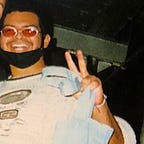What are Universals?
I find that a brief explanation on universals and particulars is in order before any such discussion can be had on said consequences thereafter. The matter at hand has a long history which dates back to ancient times. Plato’s theory of forms is the earliest example and issuance of the universal. It is a recurring theory throughout his works, in which the true essences of notions, such as justice and goodness, lie not in the observable world, but in a metaphysical plane, wholly pure and untampered by human meddling. “Plato is led to a supra-sensible world, more real than the common world of sense, the unchangeable world of ideas, which alone gives to the world of sense whatever pale reflection of reality may belong to it” (Russell).
Better put, all ideals, values, so on and so forth are gross particulars of universals. Each particular containing something in semblance to the universal, the true essence and thing. Herein lies the problem, can such universals exist? And if so, what are the ramifications for our world.
Universals attempt to categorize the observable world. Without such categorizations, there’d be an infinite number of “things” running about and interacting with the world. Take for example the universal of color. Is it not easier to label visually sensible impressions that bear some semblance to red, blue, and yellow instead of giving each hue a unique moniker to refer to it? So here we arrive at one of the benefits of using universals. For it would be a damn near impossibility for anyone to memorize the unique moniker for a specific hue of a visually sensible impression. And the moniker too would be a universal! You would just end up with more universals, given that each shade requires a name, or a noun.
Yet, this categorization of observable phenomena has its drawbacks. We needn’t look any farther than our own persona. We often times consider ourselves as unique individuals, yet if all observable phenomena are particulars of a universal, then we shouldn’t be so quick to recognize ourselves as unique individuals for the sole reason that our notions of personhood, and individuation, are universal in themselves. We contain a particular form of the true essence of said universals, but not the whole essence in our present being. There is strong evidence for this. As unique as we may be, we’re constantly identifying and reinventing ourselves with universals. I for one associate myself with the universal of man, of student, of friend, brother and son. The list goes on. How could one claim any part of their being as unique when all impressions and identities are only partial representations of greater all-encompassing ideas. I’d argue, we are nevertheless individuals, yet nothing in semblance to unique, a universal in itself.
I’ve primarily focused on the consequences of Plato’s theory yet there is a multitude of other problems that can’t be addressed. I focused on Plato’s theory because of the simplicity. I dare not to touch on Berkeley’s or Hume’s theories on the by chance that I misconstrue their arguments. As novel as Russell’s idea is, that relations are universals, it is difficult to address within the scope of this short article.
There should be no debate on whether universals exist. We constantly use universals in language. However, problems arise when there is an over-scrutiny on what universals are and how they exist. It has become apparent to me, that universals are useful and ought to be acknowledged. As for whether they exist in virtue of finite beings existing, or always existing, is not relevant. Universals are required for our everyday language; there we be no point at which we start addressing everything as a specific thing in of itself. Thus, acknowledgement and embracement of the universals are all that is left for us to do.
